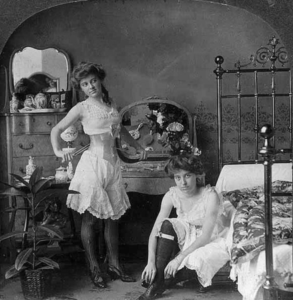Florida Will Soon Be a “Constitutional-Carry” State.
Should I and My Fellow Floridians Be Worried?

Last month, Florida passed House Bill 543, which eliminated the requirement for Floridians to have a permit to carry a concealed weapon.
RF, my brother-in-law, who is not a DeSantis fan, was not happy about it. “Did you hear what your boy just did?” he asked me.
I hadn’t. He told me.
“That’s scary,” I admitted. I imagined all hell breaking loose when it takes effect on July 2, with people shooting one another in malls, on supermarket checkout lines, in movie theaters, and up and down the entirety of I-95.
Since I had recently done a bit of research on the general effect of gun control laws and found only the weakest evidence that they reduced injuries and deaths, I thought I’d do another, more specific, search. I wanted to find out if the violence increases when citizens are allowed to carry a concealed weapon without a permit.
The first thing I discovered is that it’s not easy to study the issue. Like just about everything else today, gun control has become so politicized that the stuff you find when you go scouting – reports, and anecdotal evidence, and summaries of studies – is almost always biased.
One way this happens is with the terminology. In the legal literature, a distinction is made between “shall-issue” states and “may-issue” states. (Shall-issue states are those that allow citizens to carry without permits.) In the political literature, “shall-issue” laws are called “constitutional-carry” (versus “no-permit”). And other sources equate “may-issue” with “right-to-carry.”
Another problem is that some studies are countrywide and statewide, but gun control regulations often vary by smaller jurisdictions (like counties).
But the biggest problem is that there have been so many studies on the subject, from many different perspectives and using different metrics. On top of that, the results of those studies are often misinterpreted.
For example, the idea that “more guns = less violence” originated from a study published in 1997 that compared gun violence to permit-less concealed-carry regulations from 1977 to 1992. The study concluded that “states implementing shall-issue laws saw significant decreases in rates of violent crime, murder, rape, and assault.”
Apparently, this finding did not sit well with gun control advocates, who raised funding for several more studies that found the opposite result: States that legalized permit-less concealed-carry protocols saw increases in gun assaults by 11% to 15%.
Today, those studies are quoted by gun control advocates. But when I looked at them, I noticed the same “trick” you see in studies published by the medical-industrial complex. They quote differences in relative terms, which is misleading. In the case of those 11% to 15% increases, the actual numbers were something like 5.6 assaults for every 100,000 people, versus 4.9 assaults. That sort of difference is statistically meaningless.
More recently, two meta-studies were done of most of the previous studies – one by the National Research Council and one by the US Dept. of Health and Human Services. They both came to the same conclusion: If there is a difference between jurisdictions that have shall-carry versus will-carry regulations, it is too small to draw any definitive conclusions.
That made me feel better. And here’s a second thing that eased my mind: In becoming a shall-carry state, Florida will not be some rogue outlier. It turns out that 25 other states already have shall-carry regulations.
So where does that leave me?
I’m not going to worry about getting caught in a gun fight every time I walk into a 7-Eleven. But I need to remember that anyone anywhere might be packing.
As for gun control regulation? I’m in favor of it. Notwithstanding the data, which I do believe, I’d like to see more, not fewer, requirements. I like the child-protection requirements. I like the cool-down provisions. I also like required gun safety training.
I respect the Second Amendment. Americans have a right to carry guns. But gun control doesn’t negate that right. People also have a right to start businesses, drive cars, operate heavy machinery, and cut hair. And all of those activities require permits and training. (Interesting: In Florida today, it takes 1,200 hours of training to obtain a license to cut hair, 500 hours of training to obtain a massage therapist license, and 240 hours of training to become a licensed manicurist.)
And yes, the bad guys will be able to buy guns without permits and even guns without serial numbers. That won’t prevent the good guys from having guns, too. Everyone will have guns. But if the bad guys get caught carrying illegally, they can be prosecuted. And if they get caught using their guns to commit crimes, they’ll get extra years attached to their sentences.









